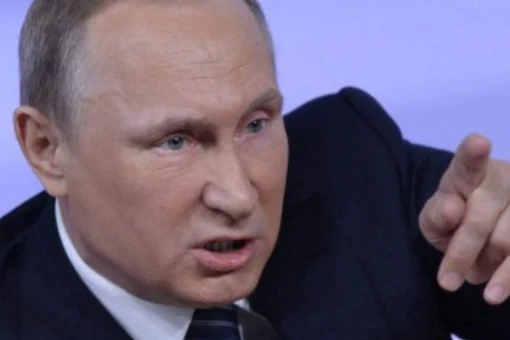Former Russian President Dmitry Medvedev has warned that the government may begin supplying wheat solely to “friendly” countries. In response to the penalties, Mr Medvedev stated on social media that he intended to highlight “some simple but significant issues concerning food security in Russia.”
He went on: “We will exclusively serve our buddies with food and agricultural products.
“Fortunately, we have a large number of them, and they are not found in Europe or North America.”
Russia largely exports wheat to Africa and the Middle East, with the EU and Ukraine serving as its major competitors.”
Russia and Ukraine, on the other hand, account for about two-thirds of world wheat exports.
Russia alone contributes for more than 18% of global wheat exports, implying that the risks might lead to a global supply deficit.
Medvedev stated in his announcement that deliveries to “friends” will be made in both roubles and their national currencies in agreed-upon quantities.
This comes after Putin insisted that payments for Russian gas be made in rubles from “unfriendly countries.”
He threatened to sever ties with these countries if his demands were not honoured.
“In order to purchase Russian natural gas, they must create ruble accounts in Russian banks,” Putin added. Payments for gas provided beginning tomorrow will be paid from these accounts (Friday).
“If such payments are not paid, we shall consider the buyers to have defaulted, with all the implications that entails.”
“Nobody sells us anything for free, and we are not going to do charity,” he stated, adding that “existing contracts will be terminated.”
However, European countries reacted angrily to Putin’s demands, with Germany calling them “blackmail.”
Germany’s Finance Minister, Robert Habeck, stated, “It is critical that we do not send a signal that we will be blackmailed by Putin.”
Meanwhile, Boris Johnson stated that paying for Russian gas in rubles is “not something we want to do.”
Russia’s gas and wheat supply threats come in the aftermath of Western sanctions imposed in reaction to Putin’s invasion of Ukraine.
Sanctions have been placed by Western allies on Russian enterprises, billionaires, and politicians with ties to Putin’s administration.
Western countries have also begun to phase out Russian energy.
The United Kingdom has vowed to phase out Russian oil imports by the end of the year, allowing the nation time to change supply lines.
Meanwhile, the EU has reached an agreement with the US to provide the nation with additional gas in order to reduce the bloc’s dependency on Russia.




















